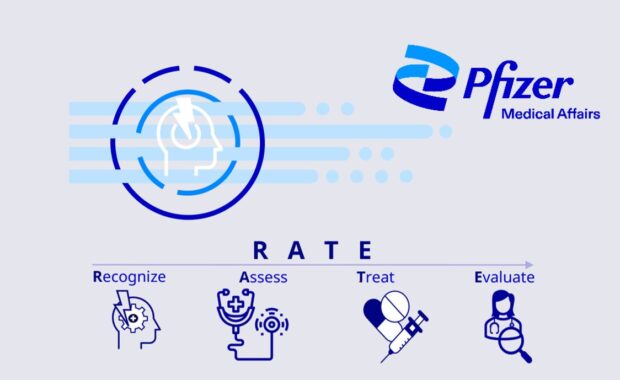Brigadier General Bill Soliz Reaches Professional Milestone by Becoming the First Active-Duty PA to Hold the Rank of General
“Being the first PA to be a general officer is a great milestone because it gives us a seat at the table and representation of our profession within the armed services.”
October 3, 2024
By Dorsey Griffith
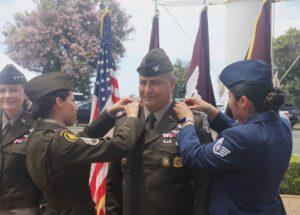
When Brigadier General Bill Soliz, PA-C, DMSc wakes up in the morning, he’s already six hours behind schedule, with a full e-mail box and duties to fulfill for a territory covering half the world’s surface or, as he jokes, from “Hollywood to Bollywood.”
As Commanding General for the Medical Readiness Command, Pacific and Director of the Indo-Pacific Defense Health Network, Soliz oversees a health system of Army, Navy, and Air Force hospitals and clinics from California to South Korea and directs medical readiness operations for Army medical personnel in the entire Pacific region.
In holding these prestigious positions, Soliz has achieved what no PA has before.
He is the first active-duty PA to become a general and the first Latino-American non-physician general officer and commanding general in the Army Medical Department. And, while humble about his own achievements, he’s proud to have accomplished them as a PA.
“It’s something I don’t focus on,” he said. “But I know it’s a milestone for the Army and for our culture. To me, being the first PA to be a general officer is a great milestone because it gives us a seat at the table and representation of our profession within the armed services.”
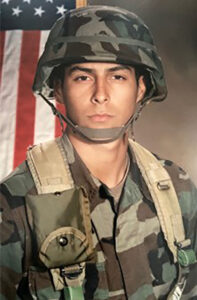
As a teen growing up in San Jose, California, Soliz had no idea it would pave the path toward achievement and leadership he has walked over the past 37 years.
“I joined the Army out of high school with no experience or education,” he said, pointing out that “the reason I joined is not the same reason I stayed.” Soliz said he joined for the many opportunities the Army afforded, some of which his parents could not: a college education, medical and dental coverage, physical fitness, and travel throughout the country and world.
“Once I came on board, I was hooked,” he said. “The reason I stayed was the purpose, the cause, and serving something greater than myself… the camaraderie and love of country. That has been driving me throughout my career.”
Soliz’s introduction to the PA field came early in his military career. As a combat medic in the infantry division at Fort Campbell, Kentucky, he was introduced to a PA. At the time, he knew nothing about the profession.
“On day one, I was being trained to be a medic,” he recalled. “I was blown away over the autonomy they gave me. I learned how to take a patient history and conduct a medical exam and about medications and dosages. I felt like I was in medical school and soon realized how much skill they had.”
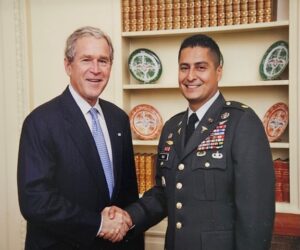
Soliz was soon deployed to support Operation Desert Storm, the U.S.-led liberation of Kuwait, where the more seasoned medics in his unit took him under their wing and taught him the fundamentals.
“That was my foundation; that is what made me the soldier and person I am,” he said. “The infantrymen I was training with in Desert Storm taught me day to day what leadership was about: taking care of and serving others, how to dig a foxhole, how to keep your equipment dry, how to make sure your supplies are ready to go. Everything was a leadership lesson.”
After Soliz left the unit, he went to school to become a licensed practical nurse and worked in critical care and emergency medicine, further inspiring him to become a PA. “I had no college, so I started to take classes nights and on weekends to get my prerequisites to apply for PA school,” he said. “After three years serving as an LPN, I got my PA degree.”
Looking back, Soliz said his early days as a PA at Fort Bragg in North Carolina were among his most challenging. “It was my first opportunity out of school to see patients. I was in a clinic in my unit. What was challenging was being pulled in different directions between work and my family,” he said. “By this time, I had three children. My son was 2 and diagnosed with autism.”
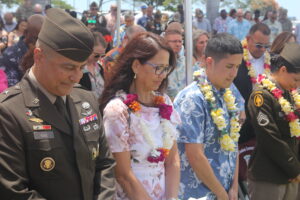
Soliz said he got through it thanks to the support of his wife, Jackie, and his compassionate military superiors. Today, he happily reports that his son is 28, has a job at Home Depot and has learned to drive. His daughters are following in his military footsteps: Army Staff Sgt. Jaline Soliz, an LPN, and Air Force Staff Sgt. Nalani Soliz, who is in health services management.
Soliz’s role as a PA took him from Fort Bragg to Fort Sam Houston as an Executive Fellow, Allied Health Staff Officer for the Surgeon General at the U.S. Army Medical Command. That led to additional opportunities with increasing leadership responsibilities, including serving as the Physician Assistant to the President of the United States in 2006 and later as Operations Director in the White House Medical Unit in Washington, D.C. He has also served as a War College Fellow at the Department of Health and Human Services and the Pentagon as Executive Assistant to the Army Surgeon General and Commanding General of U.S. Army Medical Command. His service includes several overseas deployments, including to Afghanistan, as chief, Strategic Engagements Branch and Director, Prehospital Care, for CENTCOM’s Joint Theater Trauma System.
At first, Soliz didn’t realize that the PA role in the military differed from that of a civilian PA, but now appreciates how much autonomy an Army PA enjoys, especially overseas, where state licensing criteria do not restrict PAs.
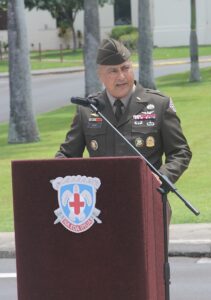
“There is no supervision,” he said of many combat zones. “They have to operate on their own with their team. It’s not always easy to call back for support or get advice in an austere environment. You deal with what you have and what you brought with you. And you are not close to a hospital or clinic to evacuate. The number of surgical skills you need is increased.”
As Commanding General for medical readiness, Soliz works to ensure medical readiness of the U.S. Army Medical Readiness Command, Pacific, preparing medics for deployment, overseeing the movement of hospital patients, blood and other medical supplies and collaborating with allies throughout the region.
“The medics will be out there on the front lines, and they will have to manage a lot more patients by themselves with PAs or physicians,” he said. “We need to prepare for that. We send them to civilian hospitals to increase their skills and have them train in the jungle, mountains, and deserts.”
As Director of the Indo-Pacific Defense Health Network, he oversees hospitals and clinics throughout the Pacific, including two Army medical centers, Tripler in Honolulu, Hawaii, where he recently served as commander, and Madigan in Tacoma, Washington. He also oversees the clinic at the Presidio in Monterey, California, a clinic in Japan, and a hospital in South Korea. His responsibilities extend to Navy and Air Force clinics, as well.
Soliz still makes time to support other Army PAs, now numbering 2,300. In August, he was a keynote speaker at the Society of Army Physician Assistants Annual Conference in San Antonio, a celebration of “50 Years of the Army PA.”
His advice for PAs at every level? “Our future looks bright,” he said. “Continue to serve and advocate for our patients and our profession.”
You May Also Like
Military PAs Celebrate Accomplishments, Share Lessons in Leadership, and Build Community at AAPA 2024
2024 Military Service Award Recipient Hopes to Lead by Example in Service
PA Christopher Dietrich Strives to Ensure Veterans Have Access to Behavioral Healthcare
Thank you for reading AAPA’s News Central
You have 2 articles left this month. Create a free account to read more stories, or become a member for more access to exclusive benefits! Already have an account? Log in.



